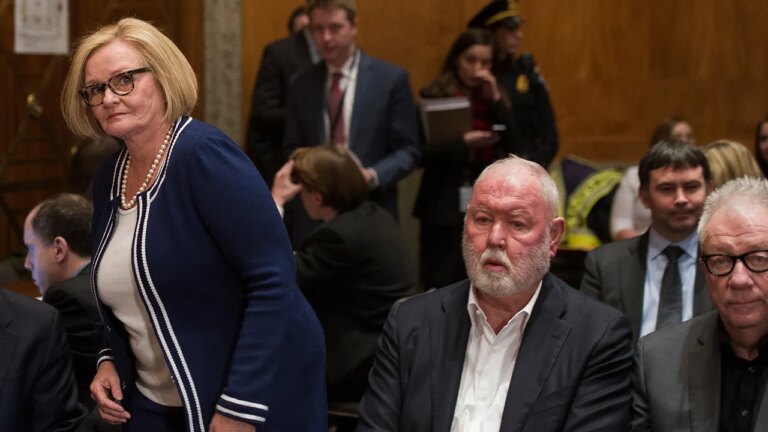SECOND TRIAL FOR BACKPAGE.COM FOUNDER AND ASSOCIATES ON PROSTITUTION AND MONEY LAUNDERING CHARGES
Jury selection is set to begin on Tuesday for the retrial of Michael Lacey, the founder of the profitable classified site Backpage.com, and four former colleagues. They face accusations of facilitating prostitution and money laundering through the platform. This comes after their initial trial ended in a mistrial in September 2021 due to concerns about the prosecution’s approach.
Lacey, along with James Larkin, founded the Phoenix New Times weekly newspaper. While Larkin faced charges and tragically passed away in July, Lacey is now facing another trial. Backpage.com, which they owned, reportedly earned $500 million in prostitution-related revenue from 2004 to 2018 before being shut down by the government.
Five ex-Backpage operators are pleading not guilty to charges related to prostitution facilitation, and among them, Lacey and two others deny money laundering accusations.
MISTRIAL DECLARED FOR BACKPAGE.COM FOUNDERS’ TRIAL INVOLVING PROSTITUTION FACILITATION
In their first trial, references to child sex trafficking led to a mistrial in September 2021, even though no one was charged with such a crime. Backpage’s marketing director admitted guilt for conspiring to aid prostitution and providing free ads to prostitutes to attract their business. Additionally, Carl Ferrer, the CEO when Backpage was closed, confessed to separate federal conspiracy and state money laundering charges.
Prosecutors claim Backpage’s operators ignored warnings to halt prostitution ads, including those involving minors. They allege that the platform offered free ads to sex workers and formed arrangements with those in the industry to post ads on their behalf.
BACKPAGE.COM ACCUSED OF PROFITING FROM PROSTITUTION ADS
According to authorities, Backpage’s staff used Google searches to identify prostitutes, then contacted them to offer free advertisements. The site is also said to have partnered with another platform where customers could review their experiences with sex workers.
Backpage’s operators argue they never permitted sex ads, asserting they used both people and automated tools to remove such content. They defended their site’s content as protected by the First Amendment. Prosecutors countered that the moderation efforts were aimed at concealing the true nature of the ads.
BACKPAGE.COM FOUNDER FACES MONEY LAUNDERING ALLEGATIONS
Lacey is additionally accused of using cryptocurrency and sending money to foreign bank accounts to launder earnings from ad sales. Banks reportedly raised concerns about illegal use of funds.
During the trial, Backpage’s defense cannot reference a 2013 memo by federal prosecutors, who found no evidence of recklessness towards minors or admissions of the site’s prostitution involvement. The memo praised Backpage’s efforts to prevent illegal activities on the platform.
IMPACT OF BACKPAGE.COM’S SEIZURE ON VICTIM IDENTIFICATION
A report from the Government Accountability Office revealed that the FBI’s ability to identify victims and traffickers decreased significantly after Backpage’s seizure. Law enforcement was familiar with the site and its responsiveness to information requests.
After a mistrial was declared in the initial trial, U.S. District Judge Susan Brnovich cautioned prosecutors about focusing on abuse details. This warning was reiterated by U.S. District Judge Diane Humetewa for the upcoming trial.

